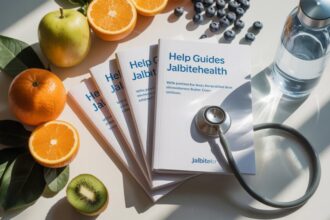Image from Unsplash
They say breakfast is the most important meal of the day, but what if it’s also the most misunderstood?
In today’s hyper-busy world, morning routines are often rushed, and the first meal of the day is either skipped or reduced to a sugary snack or overly processed quick fix. However, a rising wave of health-conscious individuals are shifting their focus back to a more intentional start. Even those on unconventional eating paths have joined the conversation, a great example being the resurgence of high-protein, minimalist meals such as those outlined in guides like carnivore diet breakfast ideas.
Whether you’re a full-fledged wellness devotee or just trying to beat the morning fog, understanding how your breakfast impacts your entire day is more crucial than ever.
Why Breakfast Matters More Than You Think
Breakfast quite literally means to “break the fast.”
After a night of sleep, your body has been without food for several hours. Your blood sugar levels are low, your metabolism is in a slower state, and your brain is hungry for fuel. Eating a balanced breakfast helps jump-start your metabolic processes, improve focus and concentration, and regulate mood.
Skipping breakfast can lead to energy crashes, poor food decisions later in the day, and even long-term metabolic disruption. According to the Centers for Disease Control and Prevention, a well-balanced breakfast is one of the key drivers in maintaining a healthy weight, improving performance at work or school, and lowering the risk of chronic diseases.
What Makes a Breakfast Truly Nutritious?
Not all breakfasts are created equal. A bowl of sugar-coated cereal and milk technically counts, but it likely won’t offer the long-lasting energy or nourishment your body craves.
A nutritious breakfast usually contains the following:
- Protein: Keeps you full and supports muscle repair and growth.
- Healthy Fats: Crucial for brain function and prolonged energy release.
- Fiber: Aids digestion and helps maintain a stable blood sugar level.
- Complex Carbohydrates: Provide sustained energy versus quick crashes.
- Micronutrients: Vitamins and minerals from fruits, vegetables, and whole foods.
The Pitfalls of Modern Breakfast Culture

Image from Unsplash
Marketing has a lot to answer for when it comes to breakfast.
From TV commercials promoting toaster pastries to cafes pushing syrup-laden lattes, convenience has often trumped quality. As a result, many people begin their day with a sugar spike and an inevitable mid-morning crash.
Additionally, breakfast has become polarized. On one end of the spectrum, you have elaborate smoothie bowls, and on the other, ultra-minimalist fasting regimens. While neither is inherently wrong, they don’t suit everyone. Your body, lifestyle, and health goals should shape what’s on your plate (or in your mug) each morning.
Protein-Powered Breakfasts for Focus and Satiety
Protein is the MVP of morning nutrition. Studies show that starting your day with protein can increase satiety, reduce cravings, and improve cognitive performance throughout the day.
Examples of protein-rich breakfasts include:
- Scrambled eggs with leafy greens and avocado
- Greek yogurt with chia seeds and berries
- Smoked salmon with a boiled egg and wholegrain toast
- Carnivore-style plates with meats and eggs
For those experimenting with more primal eating habits, protein-heavy starts help eliminate blood sugar spikes and make intermittent fasting easier to manage.
Fiber & Fat: The Unsung Heroes
While protein gets the glory, fiber and healthy fats play supporting roles that should never be overlooked.
Fiber helps maintain gut health, reduces cholesterol, and stabilizes energy. Foods like oats, flaxseeds, apples, and whole grains are rich sources.
Healthy fats, such as those found in nuts, seeds, avocado, and olive oil, support brain function and hormone regulation. Including them in your breakfast helps ensure you’re not just full, but functionally fueled.
Timing: When Should You Eat Your First Meal?
This is where the science gets personal.
Some people swear by eating within 30 minutes of waking. Others thrive on a delayed breakfast after a morning workout. The answer depends on your unique metabolic rhythm.
Intermittent fasting advocates often delay their first meal until late morning or midday. This can work well for some, but it’s not ideal for everyone, especially individuals prone to low blood sugar or those with physically demanding mornings.
The key? Tune into your body. If your energy crashes mid-morning or you’re ravenous by lunch, your current breakfast routine may need revisiting.
The Psychology of a Mindful Breakfast
Beyond physical health, your breakfast can shape your mental space.
Sitting down to eat, even for just 10 minutes, can set a tone of intentionality. This is particularly beneficial in a world of scrolling, multitasking, and frantic mornings. Pairing your breakfast with stillness, a gratitude practice, or even quiet music can anchor your day in calm.
On the flip side, rushing through a meal or eating in a stressed state can impair digestion and leave you mentally frazzled before you’ve even left the house.
Breakfast Hacks for Busy People
No time? No problem. Smart breakfast doesn’t mean elaborate.
- Overnight oats are a fiber-rich, prep-ahead option.
- Boiled eggs keep in the fridge for up to a week.
- Protein smoothies with frozen fruits, protein powder, and nut butter take 3 minutes.
- Greek yogurt with seeds is a probiotic-rich, no-fuss choice.
- Pre-cooked meats or snack packs (like those found via carnivore diet breakfast ideas) are portable and satiating.
Even if your entire breakfast happens in the car or at your desk, you can still do better than skipping it altogether.
Cultural Variations: There’s No One Right Way
Breakfast isn’t just a health practice, it’s cultural. From miso soup and rice in Japan to croissants and espresso in France, what’s considered “normal” varies globally.
Yet, many traditional breakfasts include fermented foods, proteins, and whole grains, suggesting ancient wisdom got a few things right.
Rather than subscribing to a single diet trend, we can learn from global traditions and incorporate their balanced approaches into our routines.
Final Thoughts: Customize, Don’t Compromise
The best breakfast is the one that works for you.
It should support your energy, align with your lifestyle, and leave you feeling satisfied, not sluggish or deprived. Whether that means a plant-based power bowl, a protein-rich meat plate, or a hybrid of several styles, your morning meal deserves thoughtful attention.
And in an era where misinformation, fad diets, and flashy food products are louder than ever, grounding your breakfast in real food and real science is a quiet act of rebellion worth committing to.
Start your day with nourishment, not noise. Your body and mind will thank you by noon.

















